

Bulgaria is an apt and strategic consideration for companies seeking an agile and low cost manufacturing partner in the European region. It offers manufacturers easy access to both the EU and non-EU markets. Bulgaria is strategically located in Southeastern Europe, and is accessible for international customers across Europe, the Middle East, and Central Asia. In this article, we discuss Bulgaria’s industrial zones and advantages for manufacturers.
Bulgaria’s industrial clusters are diverse, and each region is shaped by its geography, resources, and historic trade routes. Together, these regional clusters form an excellent ecosystem that supports economic development across the country. Let’s understand the various industrial clusters in Bulgaria:
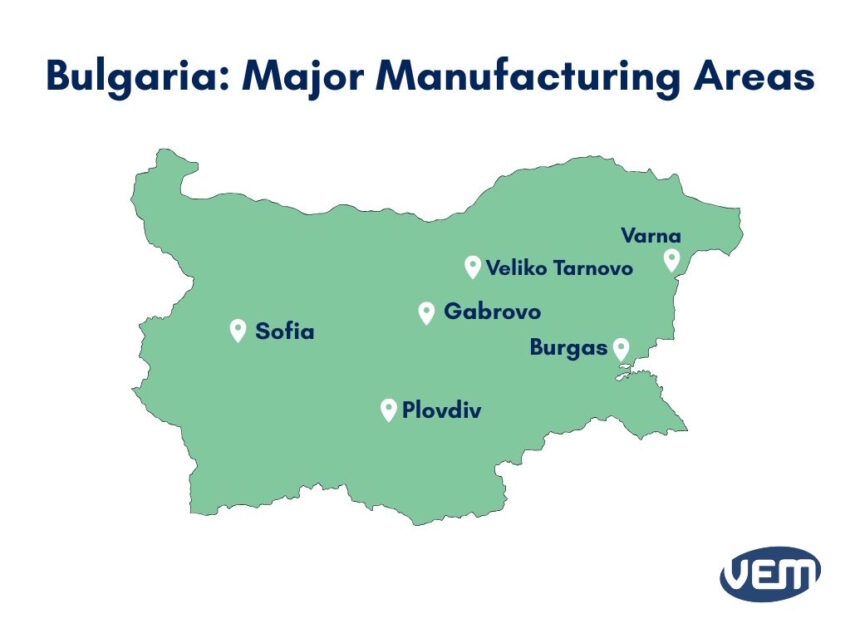
Sofia is Bulgaria’s capital and largest economic hub. It encompasses manufacturing, electronics, and IT clusters. It’s also proximal to universities and research institutions which enables design, automation, and software integration into industrial production.
The city’s infrastructure supports both local and international trade through highways, logistics centers, and good air connectivity.
Plovdiv is located in Bulgaria’s Thracian plain and leads in manufacturing automotive components, tooling, and plastics processing. It is Bulgaria’s manufacturing powerhouse and is one of the most dynamic industrial zones in Southeast Europe. Plovdiv is also proximal to the Trakia Economic Zone, which supports a large number of manufacturing companies and logistics. Plovdiv is in a central location, which ensures a seamless distribution across the Balkans.
Gabrovo is in the Balkan Mountains and specializes in mechanical engineering and precision tooling. Today, Gabrovo’s industrial cluster focuses on high-value engineering solutions and is supported by technical universities and a skilled workforce. It’s evolved into a regional hub for toolmaking, automation, and industrial equipment production.
Veliko Tarnovo is emerging as a center for light manufacturing, furniture production, and electrical equipment. Its strategic position in central Bulgaria makes it an ideal location for connecting northern and southern markets.
Varna is Bulgaria’s maritime capital. It supports industries linked to the port, shipbuilding, logistics, and marine engineering sectors. The Varna Free Zone encourages international trade and export for manufacturing companies.
Burgas is on the southern coast and supports manufacturing companies with modern port facilities for significant trade volumes. The industrial zones here include chemicals, plastics, energy, and mechanical engineering companies. Today, Burgas is evolving into a forward-looking industrial and logistics hub for the entire Black Sea region.

Bulgaria occupies a strategic position in Southeast Europe. It offers a robust infrastructure for transport and logistical advantages. Its proximity to Central and Western Europe reduces transportation costs and lead times.
Bulgaria has an English-speaking, well-educated, and skilled engineering workforce. The country’s growing pool of engineers, mold designers, and tool makers ensure that the projects benefit from skilled oversight and precise execution. In addition, it also offers competitive labour costs in the European region.
Bulgaria offers cost competitiveness with technical competence. Its labor and operational costs remain significantly lower than those of Western European countries without compromising upon the technical quality.
Industry clusters in Bulgaria foster technological advancements and innovation in engineering by bringing together companies, research institutions, and other stakeholders within specific sectors such as automotive, electronics, and IT.
Bulgaria’s tax regime has many benefits for manufacturing companies. Currently, it offers a flat corporate tax rate of 10%, to facilitate internal investment in facilities. In addition, the government offers various incentives for foreign investors.
Bulgaria’s European membership offers access with reduced trade barriers across Europe. It also facilitates smoother business operations.
Injection molding is a popular manufacturing technology for producing high-quality plastic parts. In Bulgaria, this technology is well-established, as various experienced injection molders have incorporated their factories in Bulgaria.
Tool makers in Bulgaria range from small-scale specialized toolmakers to large, fully integrated corporations with extensive injection molding facilities and solutions. Experienced injection molders and tool makers in Bulgaria maintain ISO 9001 certification, advanced inspection systems, and consistent documentation.
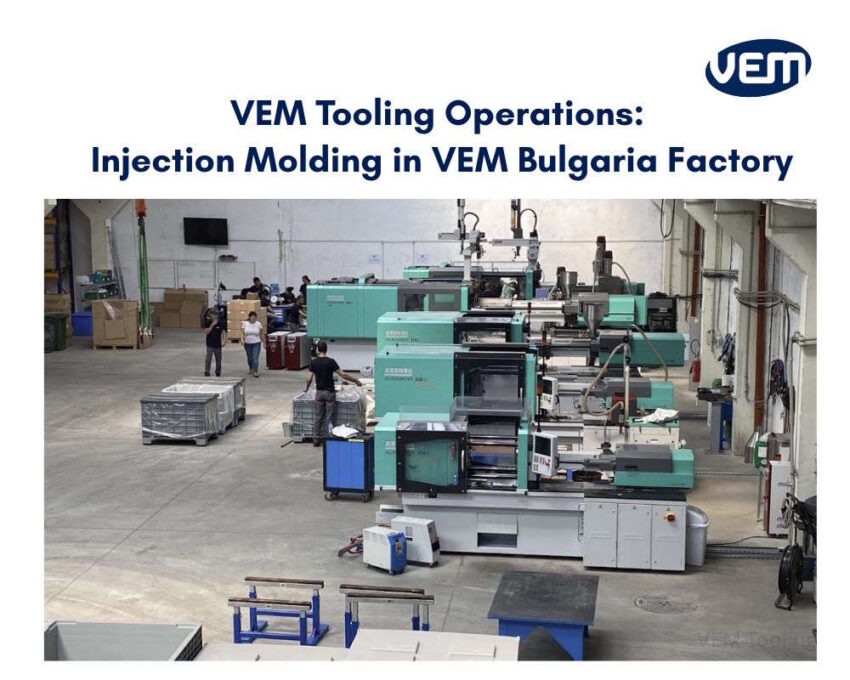
Bulgaria’s injection molding sector represents a harmonious blend of precision, adaptability, and opportunity. It is a market where cost efficiency meets European quality.
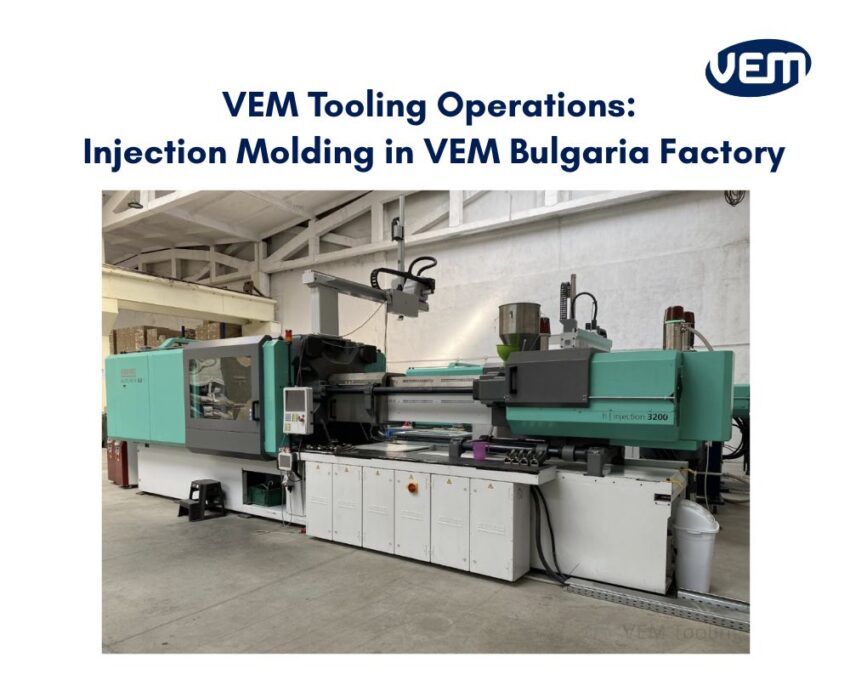
Having reliable tools, built within the EU trade zone, is a huge advantages for manufacturers. Not only are there no additional import taxes involved, the whole operation is just a quick flight away from most locations within the EU.
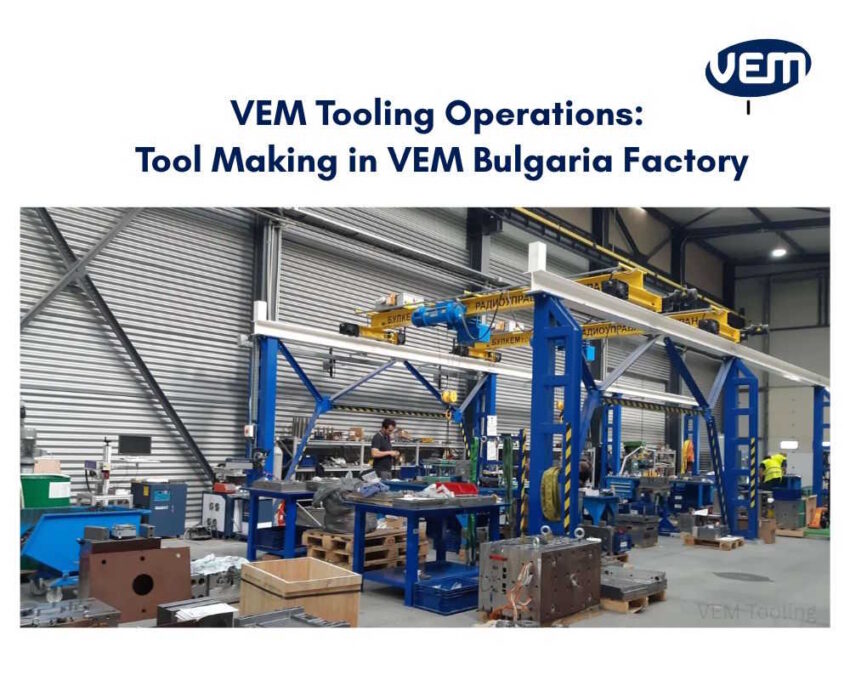
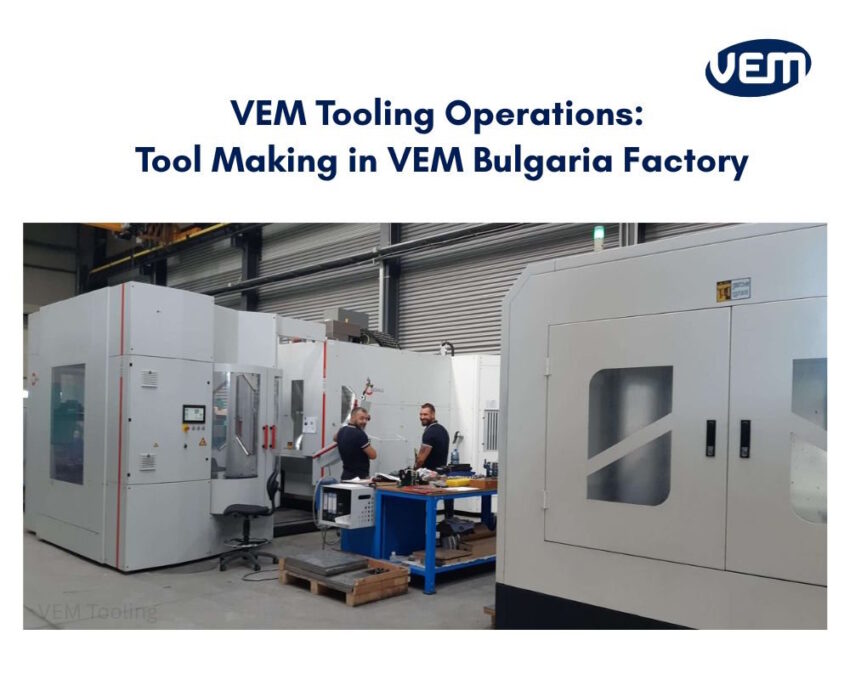
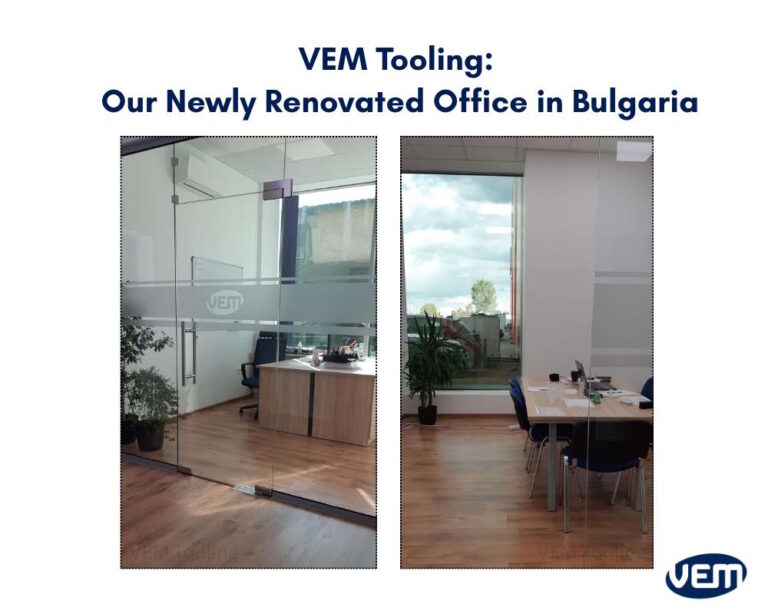
We welcome you to visit us in Bulgaria and give you a tour through our factory. Let us take a look at your projects and explore how we support you as a manufacturing partner.
To provide the best experiences, we use technologies like cookies to store and/or access device information. Consenting to these technologies will allow us to process data such as browsing behavior or unique IDs on this site. Not consenting or withdrawing consent, may adversely affect certain features and functions.